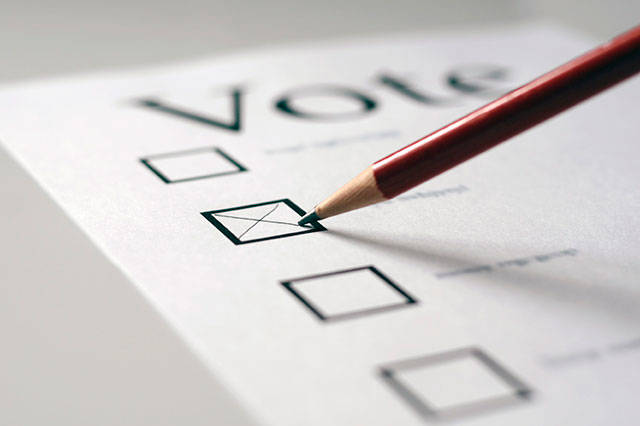Alaska’s upcoming elections were the subject of a virtual town hall Thursday night that was hosted by Lt. Gov. Kevin Meyer and Gail Fenumiai, the director of Alaska’s Division of Elections.
“We want to make sure anyone who wants to vote is able to vote and is able to do it in the most comfortable fashion as possible,” Meyer said during Thursday’s town hall. “And so that’s why we’re offering many different options, or choices. And a lot of these are the same choices people had in other elections, just with some minor modifications.”
For both the primary and general elections this year, registered voters in Alaska have the option to mail in an absentee ballot, vote early or vote in person the day of the elections.
Meyer said that because of the ongoing COVID-19 pandemic, the state is encouraging as many people as possible to vote early or vote by mail to avoid large crowds on election day.
In-person early voting will be set up at 170 locations across the state, Meyer said, and poll workers will be in full PPE, including masks and gloves. Voters are “strongly encouraged” to wear a mask if they are voting in person. Masks will be distributed at polling sites. Pens and voting booths will be sanitized in between each voter.
Meyer said that the state is struggling to find enough poll workers to staff both the early voting locations and the 441 voting precincts across Alaska on election day due to the pandemic. Poll workers in the past have been predominantly senior citizens or retirees. Meyer said that many have already expressed apprehension about working the polls and possibly becoming sick as a result.
To operate, each polling location requires at least three people. Meyer said that the Division of Elections will be promoting their “Adopt a Precinct” program to make up for the lack of staff by having local communities donate financial support to their individual precincts. Through the program, organizations can voluntarily provide the personnel for polling locations. The Division of Elections will provide a donation of up to $1,475 per election to a local charity.
Fenumiai said that schools across the state will make up the majority of polling locations, regardless of whether in-person classes have started in the state or not.
When asked why the state isn’t adopting a system that is strictly mail-in ballots only, Meyer said that the logistics of that process could leave room for ballot insecurity.
Voters who are registered either as Republican, nonpartisan or independent, Meyer said, get the choice of two ballots on election day. Both would need to be sent in the mail, Meyer said, and half of them would be unused and thrown out.
“There’s 450,000 voters that could get either ballot,” Meyer said. “So if you send out both ballots, because you don’t know which, that’s 900,000 ballots. And we know in the primary that only 30% of people vote, so that’s 600,000 ballots that are going to be in the trash can or at the post office, sitting on the shelves or on someone’s kitchen table, and that’s just a lot of unsecure ballots that’s worrisome to us.”
All voters can request an absentee ballot through the Division of Elections if they wish to vote by mail, but the voter is responsible for the postage.
The full town hall can be found on the lieutenant governor’s Facebook page.
Election and voter registration information, including information on requesting an absentee ballot, can be found by visiting elections.alaska.gov, emailing elections@alaska.gov or calling 907-465-4611.
Alaska’s primary election will take place on Aug. 18. General election day is Nov. 3. Early voting for both elections starts 15 days prior to election day.

